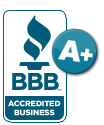It is important for consumers to better understand the structured settlement factoring industry before transferring the rights to their settlement payments. Many tort victims throughout the next week, month, or year will sell structured settlements without knowing the details of the transaction. Settlement Quotes will publish a weekly FAQ on structured settlement factoring to better educate our clients and other individuals interested in factoring a structured settlement.
- Structured settlement factoring transactions are completed through a court order process, otherwise the transaction is subject to a 40% excise tax penalty.
- As of February 1st, 2008, 46 States have regulations to control the transfer of payment rights on structured settlements.
- Qualified state statues must make certain baseline findings, including that the transfer is in the best interest of the seller, taking into account the welfare and support of any dependents. (some states have added qualifications- i.e- West Virginia- update- "The court may appoint a guardian ad litem for the consumer in all cases, and shall appoint a guardian at litem for the consumer in any case where the structured settlement payment rights belong to an infant, an incompetent person or a ward of the court. The guardian ad litem shall review the requisite disclosures and make an independent inquiry to determine whether the proposed transfer is fair, reasonable and in the best interests of the consumer and any dependents of the consumer as well and determine if transfer has been attempted or accomplished before. The information shall be reported to the court during the hearing on the matter.")
- Discount rates are used in factoring transactions to describe more commonly known interest rates. When an outcome is solved for an interest rate, it is known as a discount rate.
- Structured settlement factoring was established in the 1980's.





